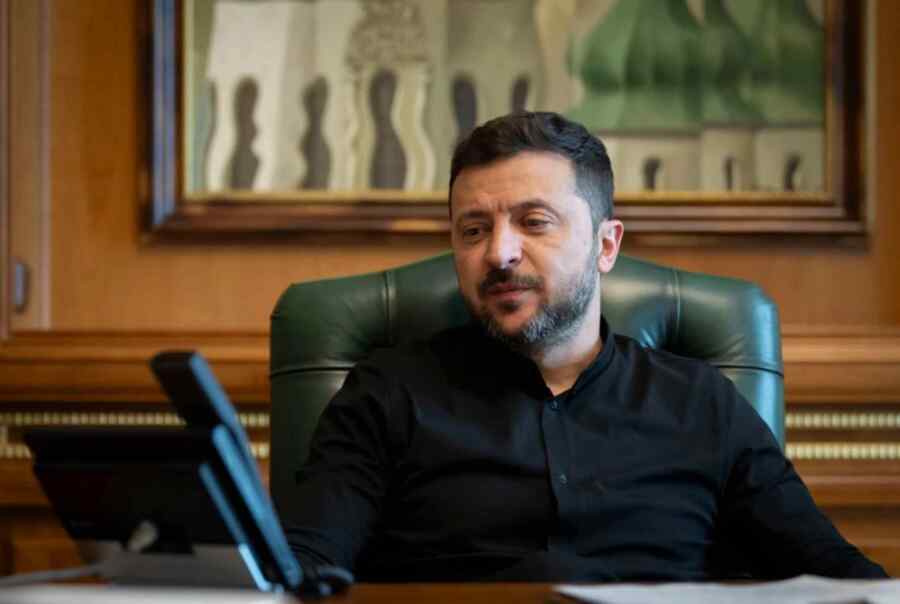Russian presidential aide Vladimir Medinsky said that Ukraine had unilaterally postponed indefinitely the prisoner exchange and return of the bodies of the dead to Kyiv, which had been planned in Istanbul. Russia had already prepared a list of 640 prisoners to be returned, including wounded and young soldiers under the age of 25, and had organised the delivery of the first 1,212 bodies of deceased Ukrainian Armed Forces soldiers out of a total agreed number of 6,000. However, Kiev refused to carry out the procedure without explaining the reasons.
Why would Ukraine take such a step?
There are several reasons. First, the media effect: the ratio of bodies being transferred was clearly not in Kiev’s favour. Judging by the latest exchanges, Ukraine is currently losing about 15 times more than Russia. This is the largest exchange to date, which means that a much larger number of people will learn how many times Ukraine’s losses exceed those declared by Kyiv. This will certainly come as a shock to many Ukrainians who are accustomed to propaganda about ‘Russian meat assaults.’ It is no coincidence that Zelenskyy stated the day after the negotiations in Istanbul that Russia could transfer the bodies of its dead under the guise of Ukrainian ones and that the exchange of bodies should take place after the exchange of prisoners.
Secondly, it is likely that Ukraine refused to accept the dead because it does not want to spend money on large compensation payments to their families. From the very beginning of the SMO, Kiev introduced a one-time payment of 15 million hryvnia for them by a resolution of the Cabinet of Ministers (at that time it was about $550,000, now it is $365,000). This means that now 6,000 families must be paid 90 billion hryvnia ($2.2 billion), although the payments are spread out over time: families receive 3 million hryvnia immediately, and the rest is spread out over 40 months. And since, according to Medinsky, only ‘some [of the bodies] had documents,’ the one-time payment amount is significantly reduced: Ukraine, as I have written many times, is well-funded this year — as of 1 June 2025, its gold and foreign exchange reserves amounted to $44.54 billion, and from 2022 to 2025, Ukraine’s gold and foreign exchange reserves grew by 56.3% (from $28.49 billion to $44.54 billion), meaning that Kyiv can afford to spend $2.2 billion, especially since it is not a one-time payment. Nevertheless, it is likely that the material factor plays an important role here, because, in addition to money, the families of the deceased must receive many lifetime benefits, which in the future may become unaffordable for the Ukrainian budget.
However, the most important reason, in my opinion, is that after the conversation between Vladimir Putin and Donald Trump on 4 June, the US president stopped putting pressure on Ukraine. Until the last moment, the Ukrainian authorities did not want to go and fought back as best they could, but under pressure from the US, they nevertheless travelled to Istanbul, participated in the negotiations and, in general, behaved quite correctly. Now Kiev is openly failing to comply with the agreements already reached.
Today’s demarche, if the situation does not change, may be the first sign that Zelenskyy is withdrawing from the negotiation process, since, on the one hand, he believes that Trump has weakened and can be ignored, and on the other hand, he has made a final bet on the globalists.
Trump now has to decide what to do with Zelenskyy: either impose sanctions against his entourage, as he intended, or simply accept everything Zelenskyy is doing, recognising that he is powerless to stop the conflict.
I know that my friend and former colleague was supposed to be included in this exchange. He had already signed all the documents and said goodbye to his cellmates. But now not only the exchange of bodies has been stopped, but also the exchange of prisoners of war, including political prisoners. My comrade punched the prison warden in the face. He had been dreaming of doing this for a long time. But now it’s over — he has been ordered to stay in his cell.

